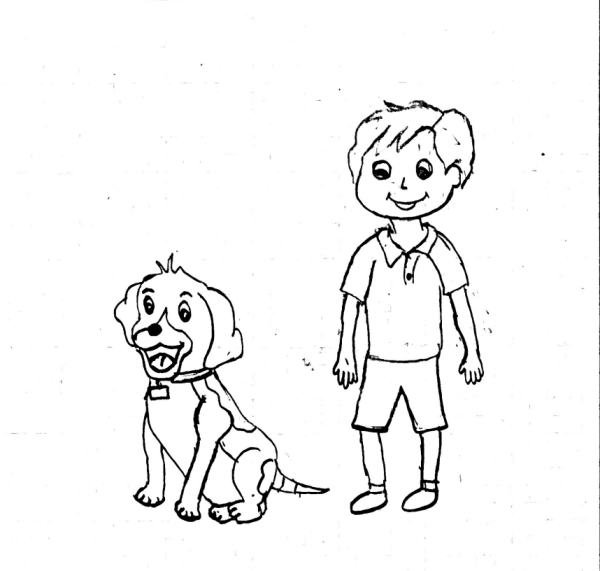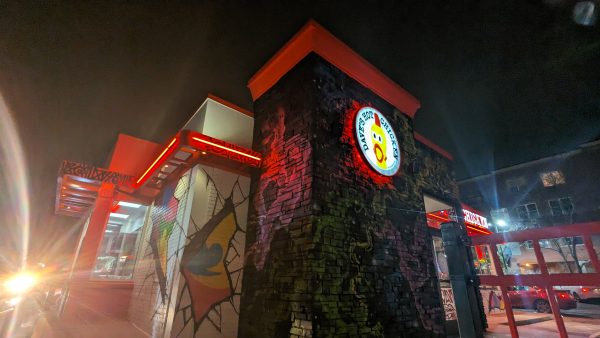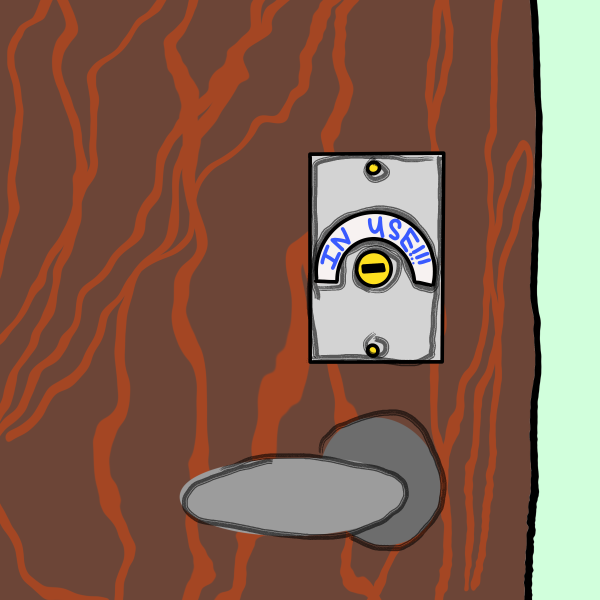Think before you chew
Enjoy what you eat, but there’s a catch . . .
People are naturally obsessed with waste. Not wasting time. Not wasting freedom. Not wasting money. That’s especially true with the average college student: deep into student debt and stress, we can’t afford to waste anything.
Despite our natural predisposition to this, however, there’s another kind of waste that goes unnoticed by the majority of people. It’s the kind of waste that we’d readily get rid of: the waste of our food.
In Anderson, we have a unique opportunity to dispose of food in a responsible fashion. Green compost bins around Anderson serve as our vessel for transporting the food waste to Barthold Recycling, a recycling company that is partnered with Hamline. When food is not consumed by individuals and put into the food waste bins, the waste is used as feed for pigs or cattle.
This use for food scraps vastly outweighs the alternative of putting the food waste into landfills. Generally, when organic food decomposes, methane is released. This greenhouse gas quickly builds up when it’s deposited at landfill sites with little regulation. Not only does it smell, it’s not environmentally healthy. The New York Times puts the figure that, by eliminating most food waste, it would have the equivalent impact of removing a quarter of all the cars from the road.
It’s appalling to see how much food is misplaced on a given day. The trash is where the food should be; the recycling is empty or riddled with the substances of other bins. Everyone seems to be in a hurry, and I admit, a lot of us probably are. However, the one point in our day where we can take special attention to what we’re doing is when we are finished eating. There is very little leeway in terms of what items can go into what bins. Companies have been known to dispose of entire truckloads of recyclable or compostable material because of a displacement of the original material. It makes it even more critical for people on campus to put things into the right places.
To make it worse, it means bigger landfills and more contamination. It means a more costly price tag to the general public, and less value to the individuals that may be relying on the food scraps. Instead of getting food that was left uneaten, the food may be relocated to a site where its only fate is to burn away — a true waste of food.
There’s another point that has to be made: the green initiative for Hamline has improved over the years. In part, this has to do with improving knowledge of the world, but the other part is campus feedback. In the past, there wasn’t an option for “HERE” and “TO GO” at the grill on campus. That option gave individuals the opportunity to not use paper bags. Solar panels have been installed in Anderson. Energy efficiency is a project that runs concurrently with other green initiatives on campus.
Other campuses do similar things. Oftentimes, universities will send their unused materials to private, local companies, just as Hamline does. It’s a twofold deal: we are eco-friendly, and we promote local business. I don’t feel connected with the surrounding community as much as I would like, so it helps to know that even in small ways, I’m still able to pitch in my two cents and help. The influence of one person is pretty negligible, but taking into account each person who gets food here, the impact becomes a lot bigger. We’re also able to really reap the benefits from a place that is basically a functional buffet. Eat whatever you want in whatever size you want. No real strings attached.
It’s all a step-by-step process of trial and error. The changes on campus are relatively new, and it only bolsters our need to do more for the campus environment. A part of the change that we need to make can even lay outside of the food areas. If it’s a banana peel on the ground, or a misplaced cup on the sidewalks, it is a call for action. All of what we do, regardless of whether it has to do with food scraps or the complexities of recycling, ought to have the common goal of protecting the environment. The change in thought happens before you finish eating. It happens while we chew.





